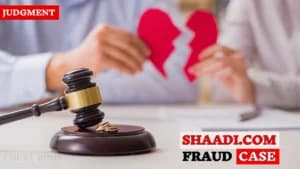The Supreme Court has clarified that a refund of advance payment under Section 22 of the Specific Relief Act, 1963 cannot be granted unless such relief is specifically claimed in the plaint. The Court emphasized that a court cannot suo moto allow this refund if it has not been expressly prayed for in the legal pleadings.
The ruling came from a bench comprising Justices J.B. Pardiwala and R. Mahadevan, which addressed a case where the appellant sought a refund of an advance payment made as part of the sale consideration. This refund was sought after the seller forfeited the earnest money due to the buyer’s failure to complete the contract.
Read Also:-Supreme Court: Judiciary Can Direct Executive to Audit Law Implementation If Objectives Not Met
“It is thus a settled position of law that the plaint may be amended at any stage of the proceedings to enable the plaintiff to seek an alternative relief, including that of refund of earnest money, and the courts have been vested with wide judicial discretion to permit such amendments. However, under Section 22 of the 1963 Act, the courts cannot grant such relief suo moto, since the inclusion of the prayer clause remains a sine qua non for the grant of such a relief.”
— Supreme Court Bench
The appellant had argued that it was not necessary to include a separate or alternative prayer for refund of the advance amount. However, Justice Pardiwala, while delivering the judgment, rejected this argument. The Court clarified that the refund of earnest money or advance payment is not automatic and must be specifically requested, either in the original plaint or through an amendment allowed under Section 22(2) of the Act.
Read Also:-Supreme Court: Stamp Vendors Performing Public Duty Are Public Servants Under Corruption Law
The Court observed that while the Specific Relief Act allows the plaintiff to amend the plaint to include such a claim at any stage of the proceedings, the plaintiff in this case did not utilize that legal remedy.
Importantly, the Court distinguished between ancillary reliefs and alternative reliefs. It referred to the earlier case of Manickam @ Thandapani vs Vasantha, 2022(SC) 395, where it was held that if a relief naturally flows from the decree of specific performance, it need not be expressly pleaded.
“Since the delivery of possession is a necessary implication flowing from the execution of a decree of specific performance, a specific prayer would not be required for the delivery of possession.”
— Supreme Court in Manickam @ Thandapani vs Vasantha
However, in the present case, the Court clarified that a refund of the advance amount is not an automatic consequence of a decree and therefore must be specifically sought.
The Court concluded that since the appellant did not fulfill the terms of the sale agreement and failed to pay the balance consideration, he could not be granted a refund of the advance without a specific plea in the plaint.
“When an ‘appropriate case’ exists for seeking the said relief under this provision, it must be specifically sought either in the original plaint or by way of an amendment.”
— Supreme Court Bench
This judgment reinforces the legal requirement for plaintiffs to carefully draft their pleadings and include all necessary prayers, especially when seeking relief related to monetary refund under contractual disputes.
Also From Judgment: Forfeiture Of 'Earnest Money' Is Not Penal In Ordinary Sense So As To Apply Section 74 Contract Act : Supreme Court
Case Title: K.R. SURESH VERSUS R. POORNIMA & ORS.















